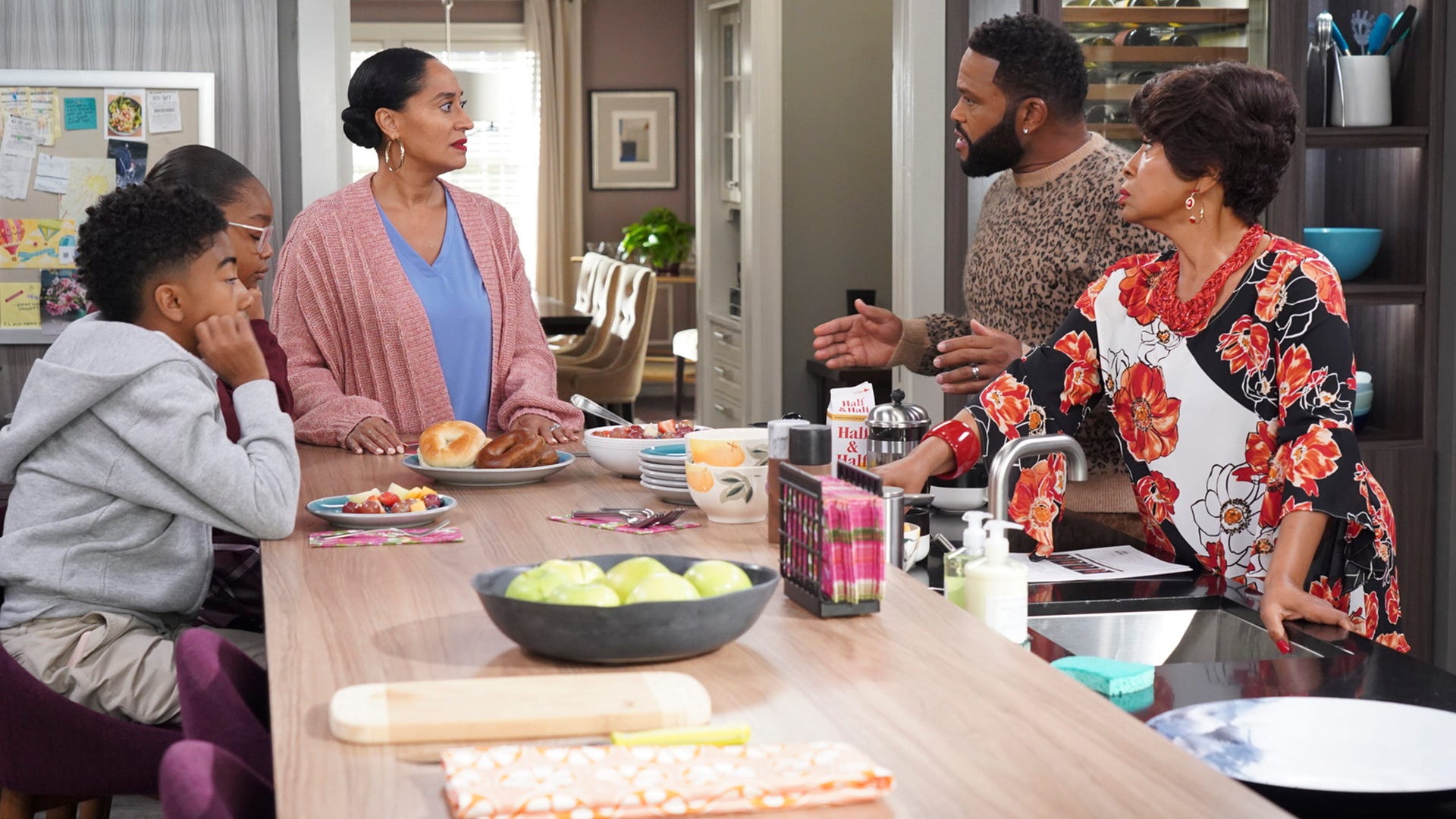Join or Sign In
Sign in to customize your TV listings
By joining TV Guide, you agree to our Terms of Use and acknowledge the data practices in our Privacy Policy.
How black-ish's Powerful Colorism Episode Nearly Tore the Johnsons Apart
A bad school photo leads to a raw, emotional confrontation
black-ishhas boldly tackled many issues Black Americans face when going out in the world throughout its five seasons, but Tuesday's "Black Like Us," turned the gaze inward to create one of its most poignant episodes ever.
Starting with a simple annoyance about Diane (Marsai Martin) being poorly lit in her school photo, Diane's parents Andre (Anthony Anderson) and Bo (Tracee Ellis Ross) open up a conversation about colorism (discrimination based on skin tone, not race) within the African American community that turns explosive, personal and painful. Of course, black-ish doing moving, even unsettling commentary around the complexities of race isn't new, but "Black Like Us" is one of its rawest, realest narratives which mines centuries-old beliefs about skin color that, to this day, open up wounds that are not often discussed.
Discover your new favorite show: Watch This Now!
"We'd been talking about doing this episode for a few seasons," Kenny Smith, black-ish's co-showrunner and an executive producer told TV Guide. "When we do have a story that's about a hot-button topic like this, the pressure is on to get it right. The biggest thing we hoped for is that we all just wanted people to watch and have a conversation."

Marsai Martin and Tracee Ellis Ross, black-ish
Ron Tom, ABC"Black Like Us" certainly offers up plenty to talk about. There's historical context, in the form of an animated aside about how slaveowners tended to put lighter blacks inside the plantation houses while dark skinned people worked in the fields, setting up resentments that would last for generations. There is a discussion about how Latino, Asian and Indian people see similar favoritism towards lighter skinned people over darker skinned people in their communities too. But what makes the episode so rich and startling is the heated confrontations that take place within the Johnson household itself.

black-ish
Ron Tom, ABCThat starts when Junior (Marcus Scribner) turns the tables on Dre, confronting him about his continued mockery of light-skinned people including Junior and his mom Bo; Junior calls Dre out on the ways he perpetuates the notion that light-skinned black people are "less black" or more sensitive, echoed in the pop culture consciousness in the form of Drake jokes and his own lyrics. Later, Ruby (Jenifer Lewis) opens up about her own experiences with fair-skinned relatives who tormented her because of her complexion, but only after she and Bo descend into a screaming match. There's a final reckoning by Diane, who points out, after all the arguing, that nobody is more impacted by the conversation than her, since she's the darkest in the family, bringing the story full circle with everyone's relative privilege checked. It's a packed 21-minute episode, one that keeps the ground shifting as family members air out grievances that are so difficult and so taboo that they're often not talked about within families at all. Colorism is so touchy and complex that it took the black-ish team five seasons to settle on how to best address it.
"Black Like Us" was written by Peter Saji, himself a bi-racial man with light skin. Inside the (racially diverse) writer's room, the team had a no holds barred conversation about skin color -- down to the idea of "light skin privilege" and the notorious "brown paper bag test," a humiliating exercise many black people have heard of from older family members that involved groups such as sororities or private clubs denying entry to anyone darker than a paper bag. Suffice it to say, conversations were intense and eye-opening for everyone involved. "I never considered light people and bi-racial people having two different stories when it comes to colorism," Smith said and added that, "at the table read, [the cast] was blown away." Although the cast was happy the show addressed it, "It was a hard week," he said. "People had to go there."
The hardest part of the episode, Smith said, was narrowing down so many different stories and points of view. "We only have 21 minutes, and there are so many things to deal with. What we found in our personal talks is that most of this stuff is hurtful, and we're carrying this pain we don't talk about. Just to have that free flowing conversation and hear the other side, we can start to make things better."
black-ish airs Tuesdays at 9/8c on ABC.
